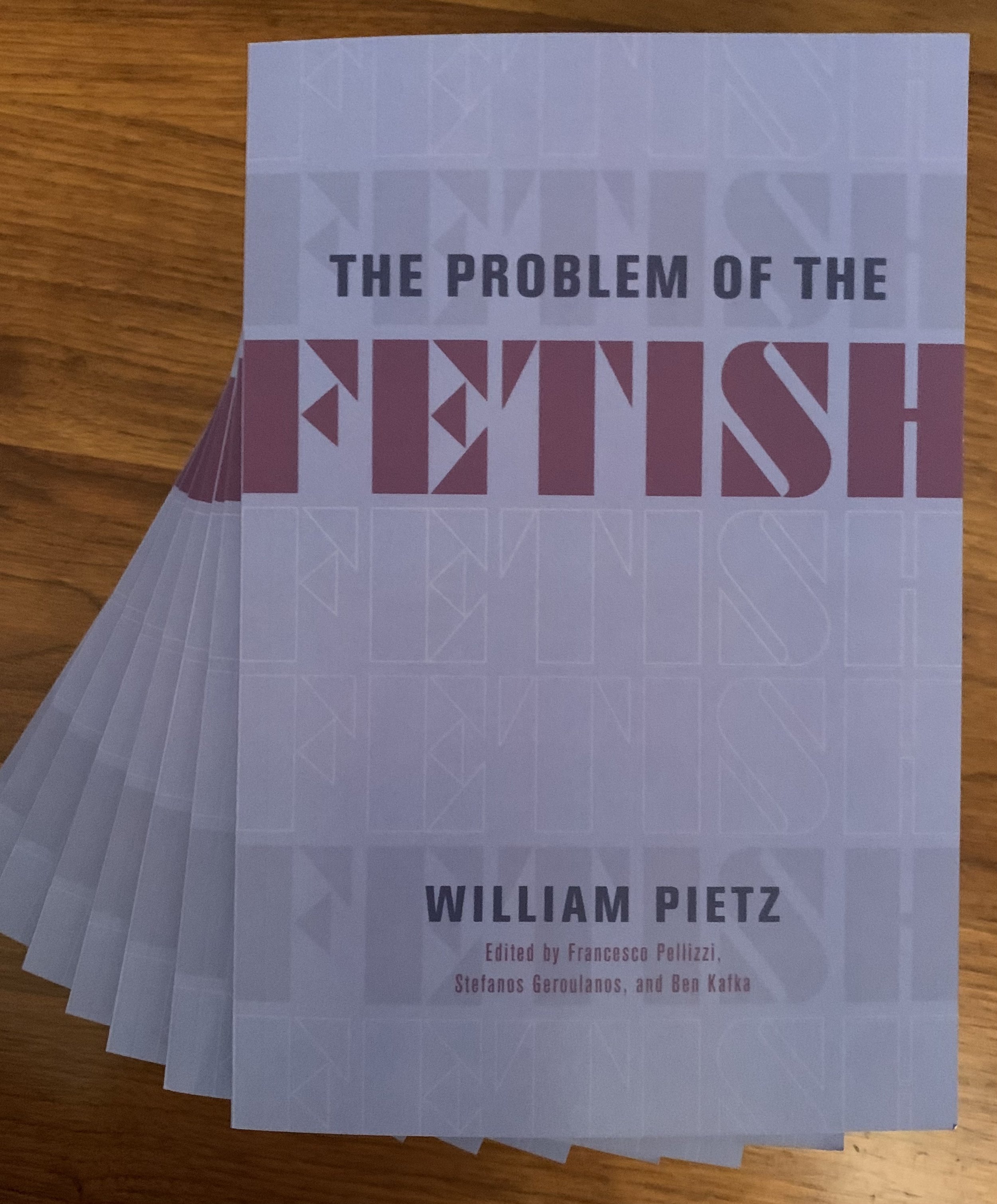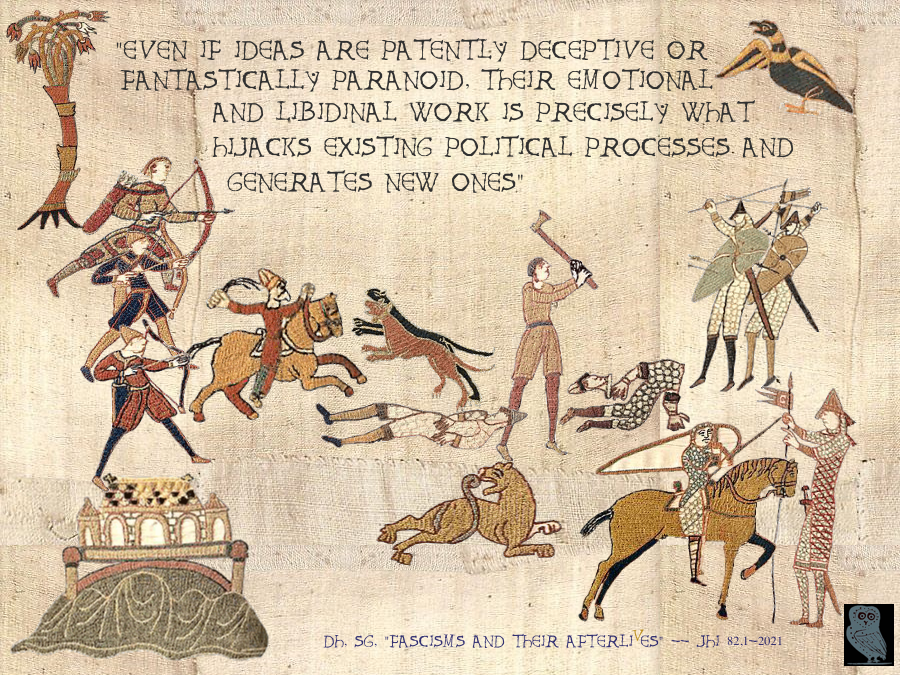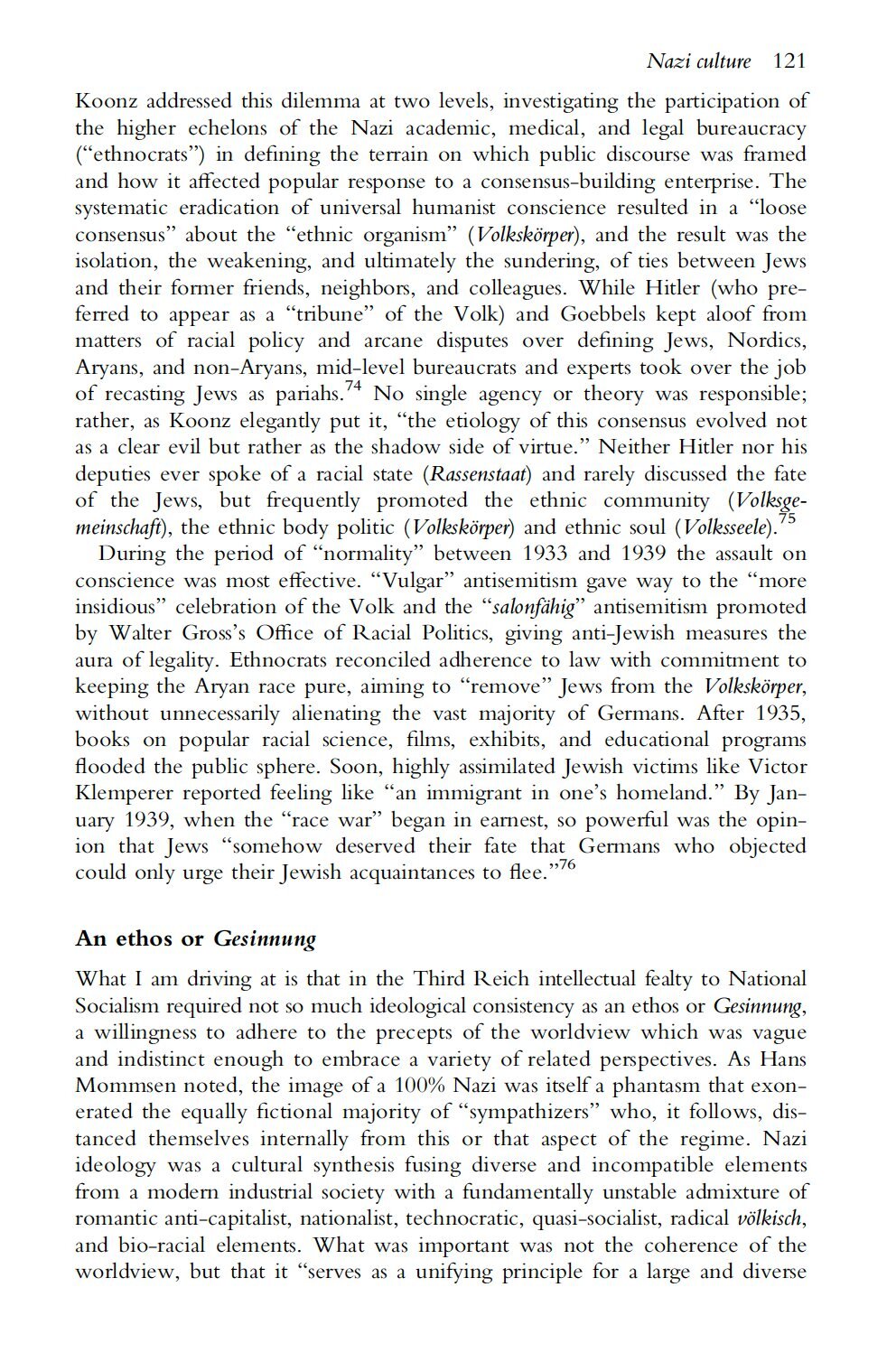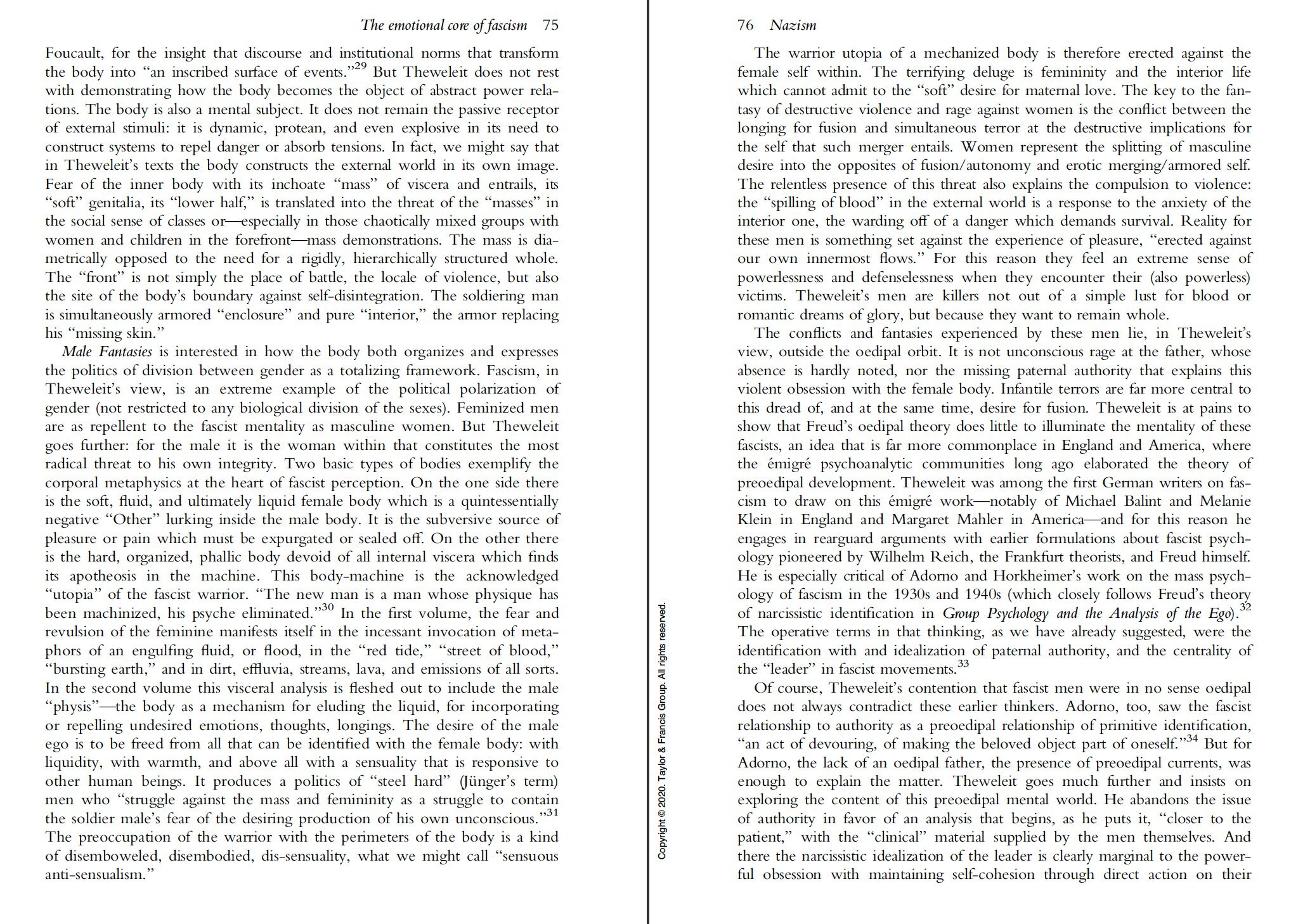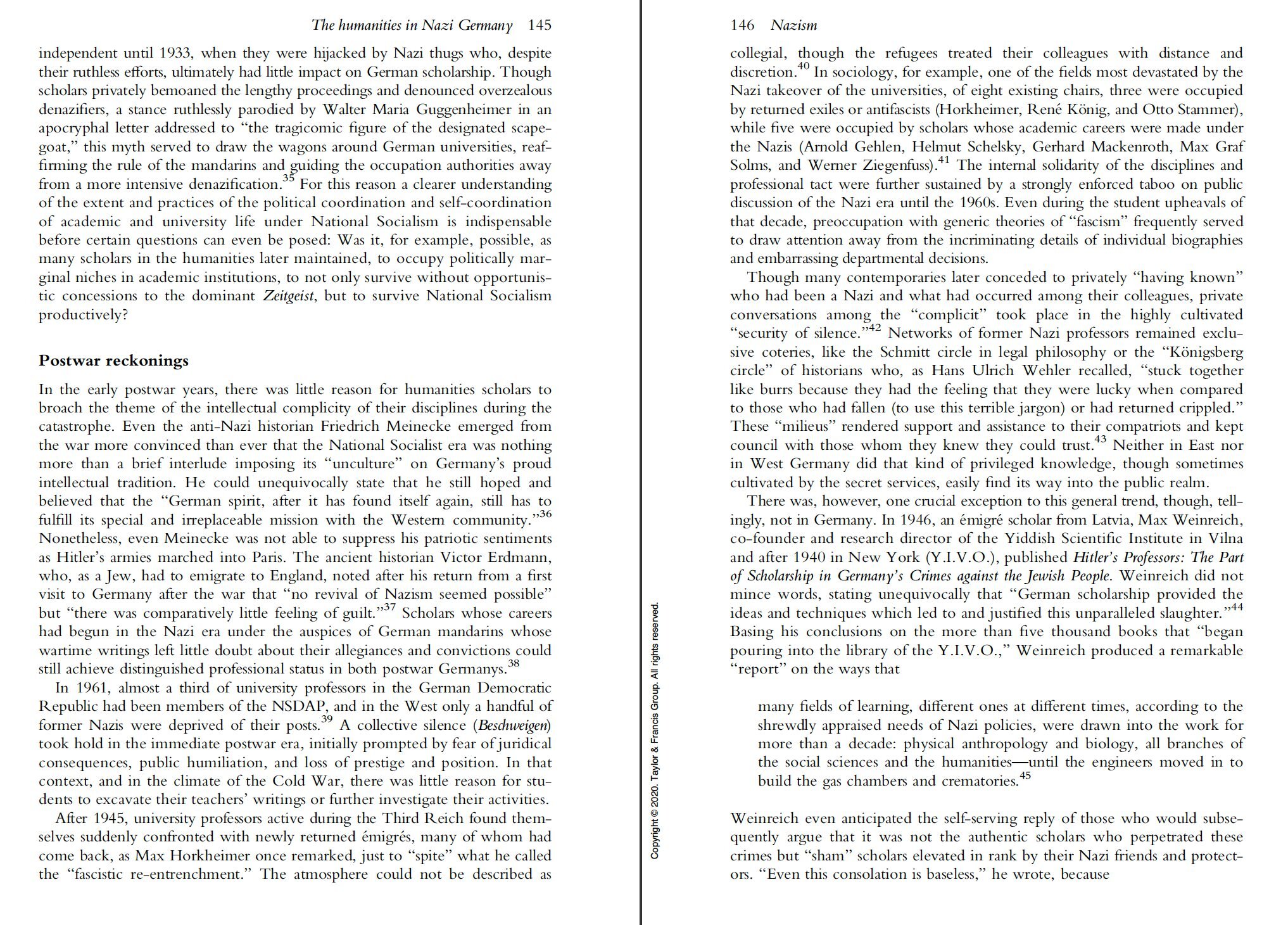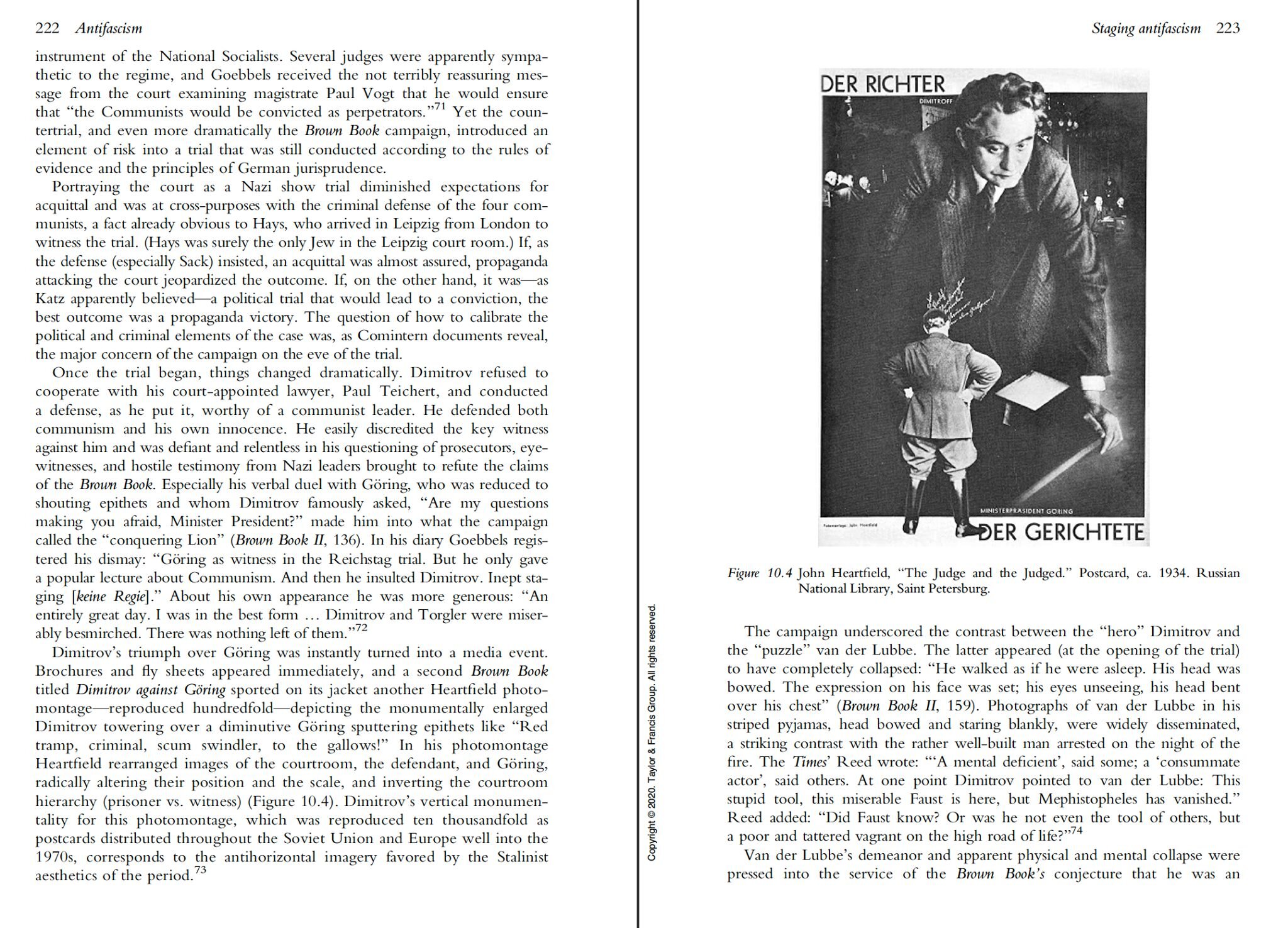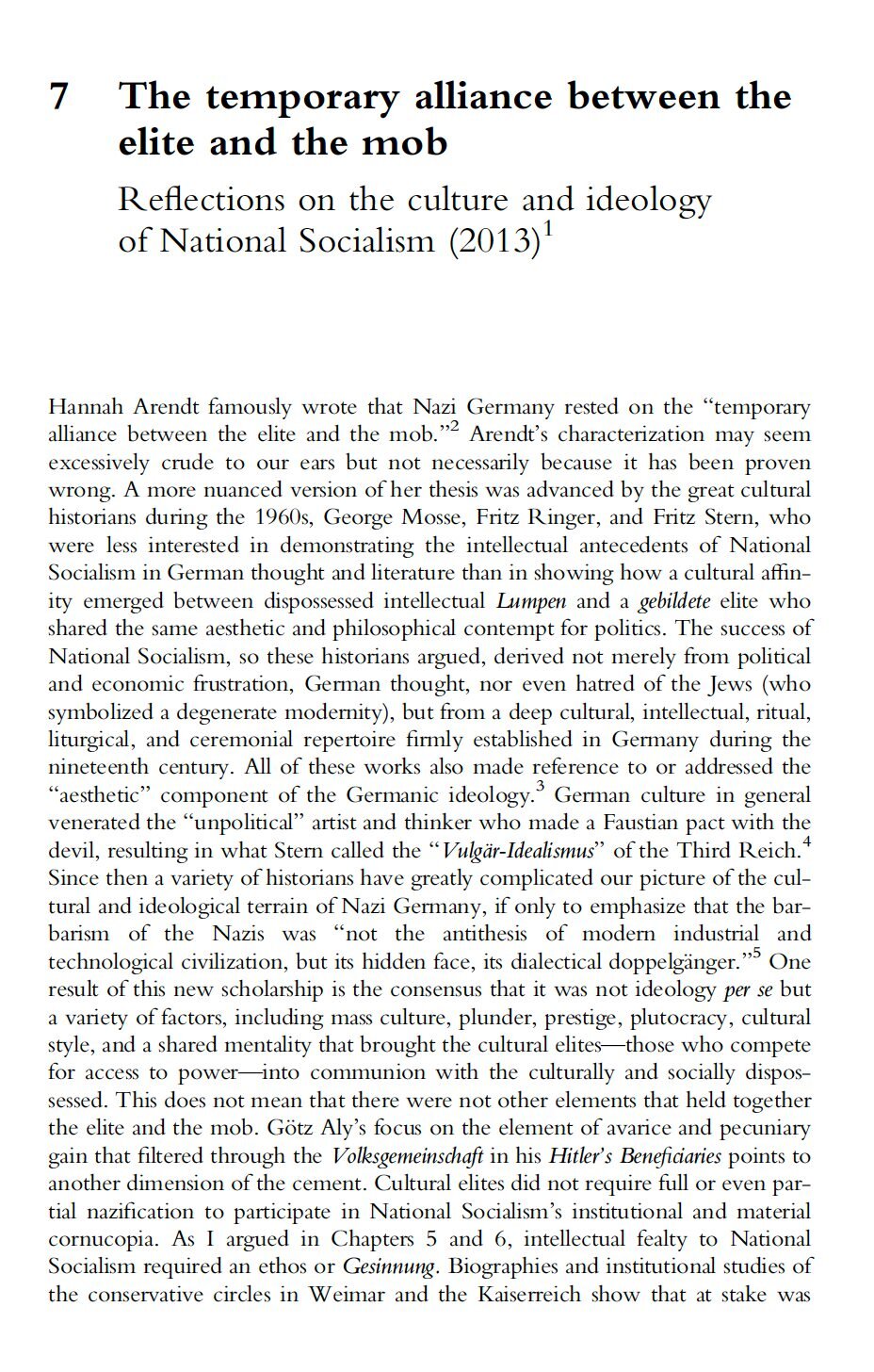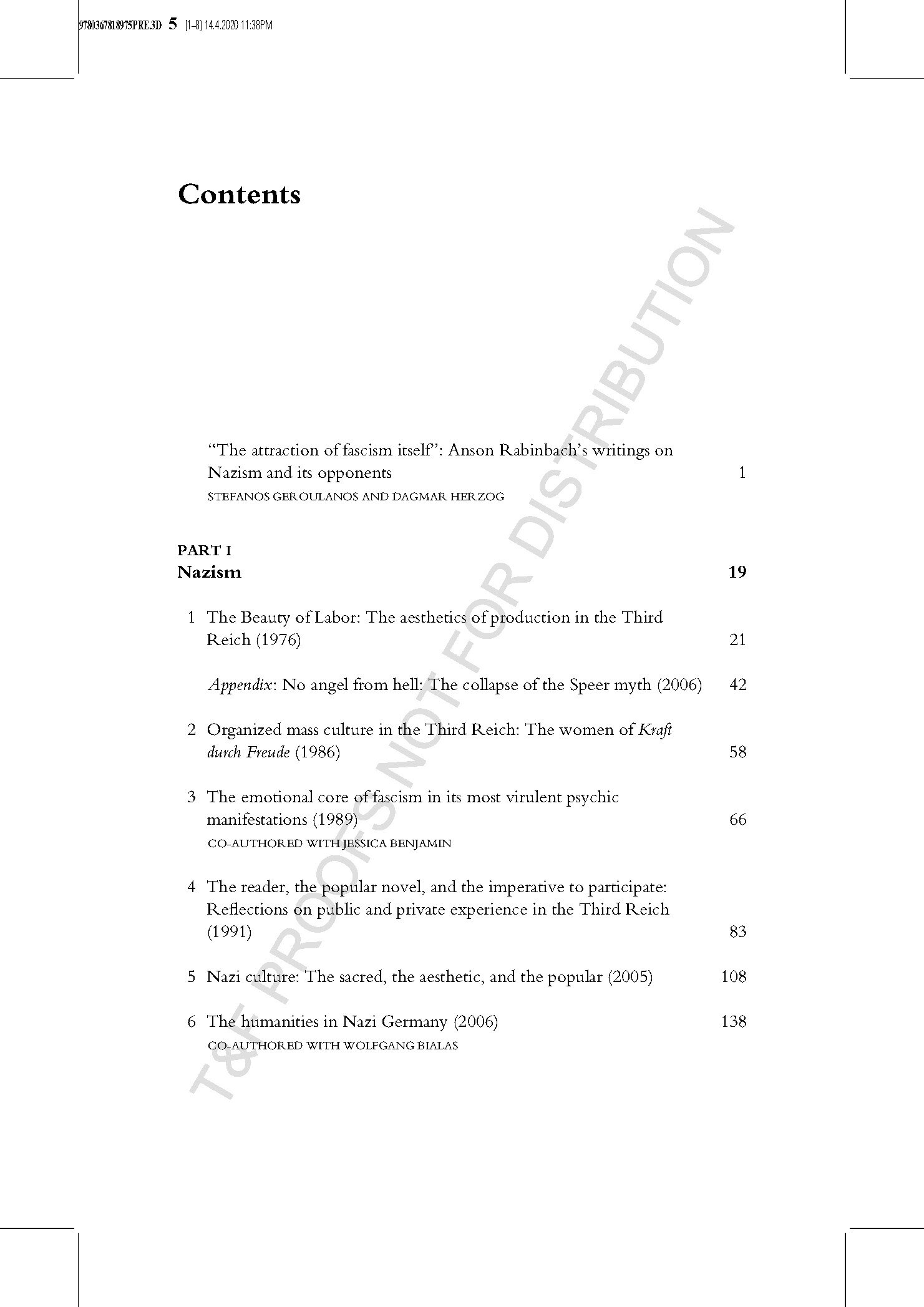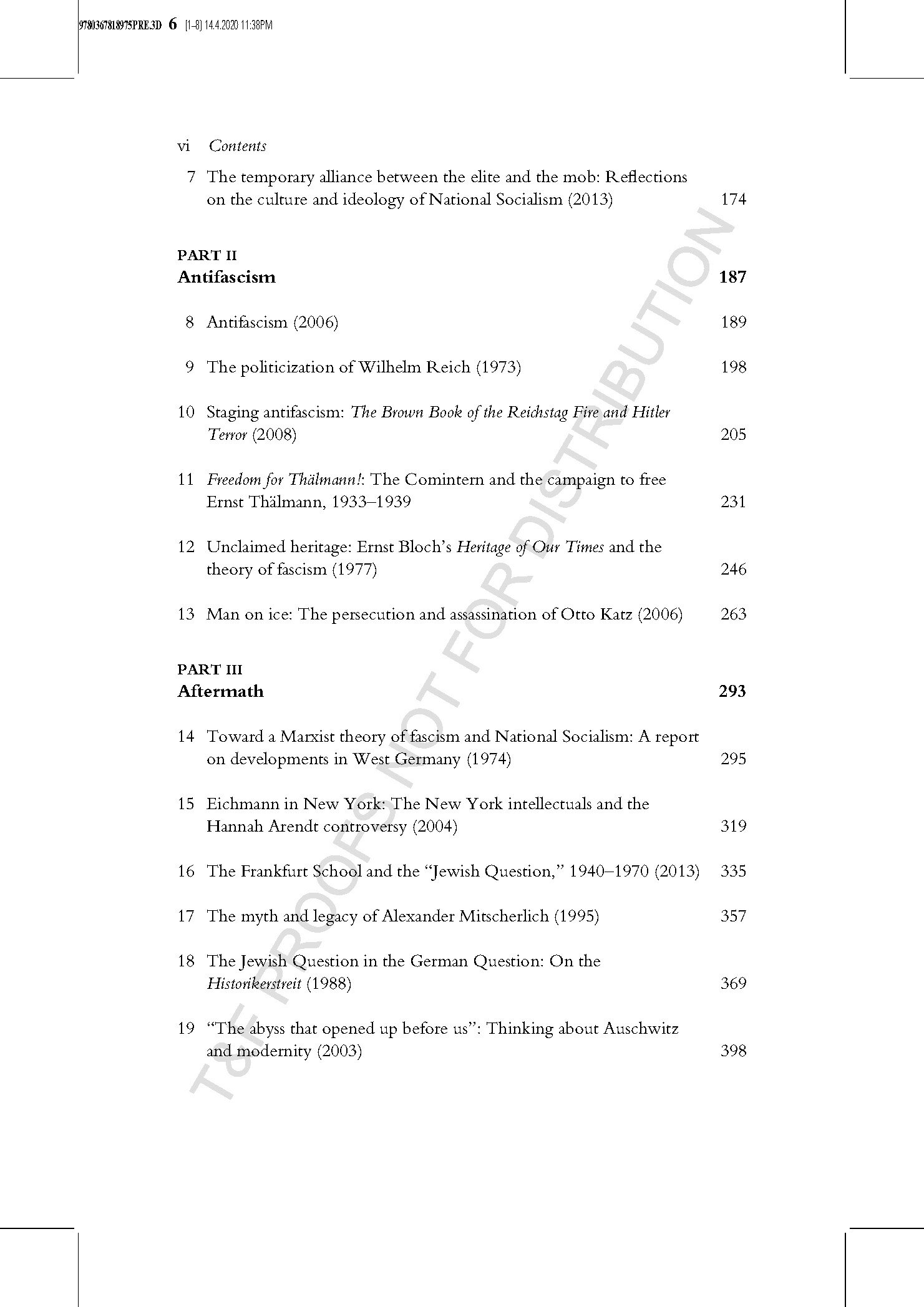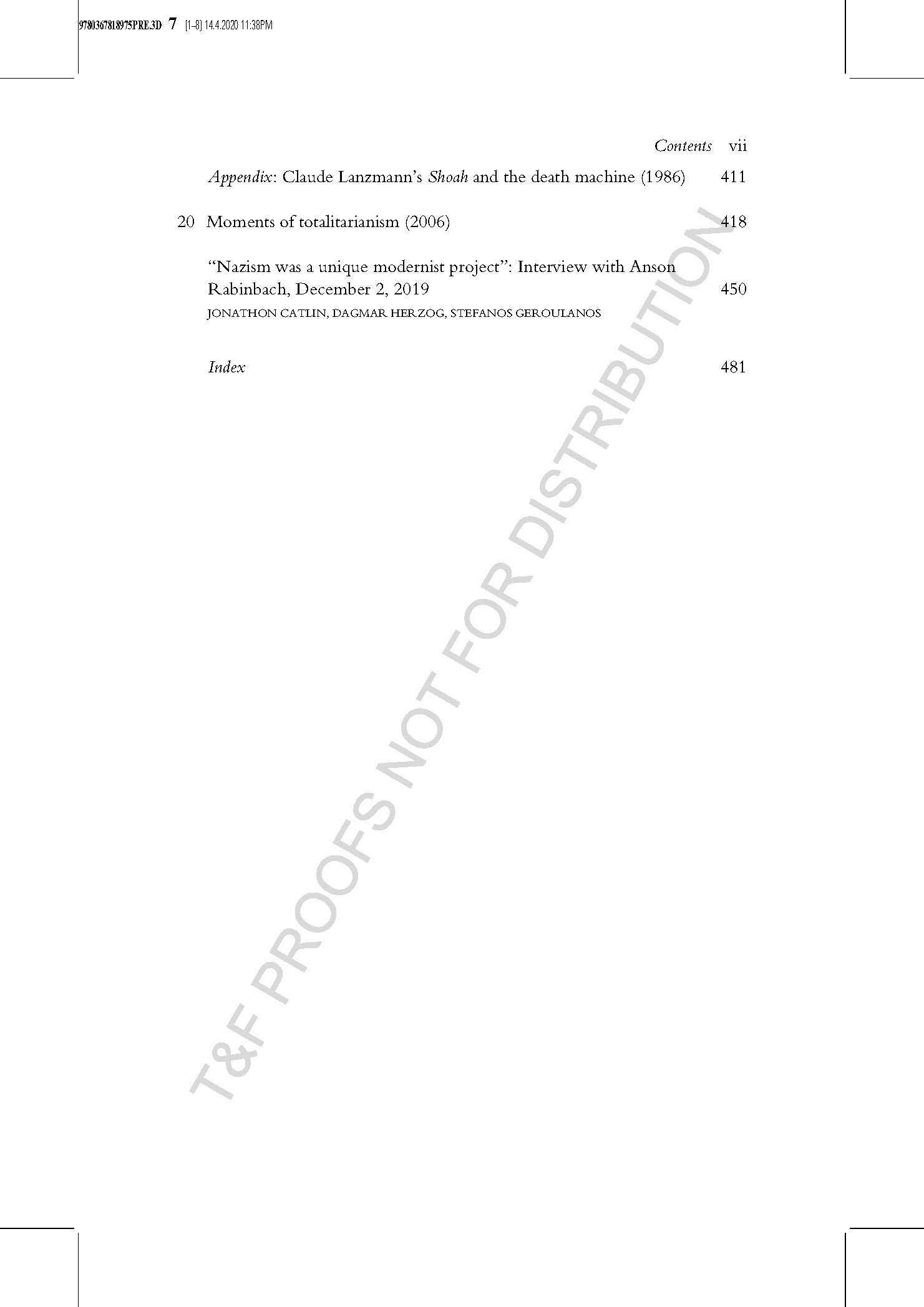Udi Greenberg reviews The Invention of Prehistory in TNR: link
New Yorker :)
here’s the review by Maya Jasanoff — and a delight to see the book among favorites:
NYT review of The Invention of Prehistory
Jennifer Szalai’s review of The Invention of Prehistory in the New York Times: link
LRB: Préhistomania, 9 May 2024
Préhistomania at the Musée de l’Homme Review in the London Review of Books
LATimes Op/Ed: We're Desperate for Half-Truths about Human Origins
Book Cover!
(forthcoming in April)
with Gisèle Sapiro, The Routledge Handbook in the History and Sociology of Ideas (2023)
translated by Anne Schult, and here in a photo that can’t quite capture the color
Macht und Zeit, September 2023
The Invention of Prehistory (forthcoming in April 2024 with Liveright) has its cover :)
Dec. 2022, William Pietz's The Problem of the Fetish is out
https://press.uchicago.edu/ucp/books/book/chicago/P/bo180517990.html
Edited by Francesco Pellizzi, Stefanos Geroulanos, and Ben Kafka
A groundbreaking account of the origins and history of the idea of fetishism.
In recent decades, William Pietz’s innovative history of the idea of the fetish has become a cult classic. Gathered here, for the first time, is his complete series of essays on fetishism, supplemented by three texts on Marx, blood sacrifice, and the money value of human life. Tracing the idea of the fetish from its origins in the Portuguese colonization of West Africa to its place in Enlightenment thought and beyond, Pietz reveals the violent emergence of a foundational concept for modern theories of value, belief, desire, and difference. This book cements Pietz’s legacy of engaging questions about material culture, object agency, merchant capitalism, and spiritual power, and introduces a powerful theorist to a new generation of thinkers.
“Pietz’s dazzling investigation of the fetish as an enigma of power—a material artifact and a source of spiritual authority at once—binds together colonial history, merchant capital, anthropological inquiry, and group psychology. His prescient framing of the concept as establishing social value and debt is indispensable reading in our era of disaster capitalism and commodity terrorism.” -- David L. Eng, University of Pennsylvania
“Assembling Pietz’s early programmatic texts and later, lesser-known ones, this book discloses the momentum and trajectory of a body of work that changed how we think about the fetish concept and so much more. As the excellent introductory essays make clear, this influence is at once profound and enigmatic, a function of the elusive phenomenon called ‘fetishism’ and of Pietz’s rigorous thinking. The book is a gift—mandatory reading for every critical thinker of the contemporary and its histories.” -- Rosalind C. Morris, Columbia University
“In this groundbreaking work of interdisciplinary scholarship, Pietz provides an illuminating genealogy of fetishism, one that is also a fascinating theory of persistent misrecognition—of others and ourselves. Here, at last, the celebrated deployments of the fetish by Hume, Kant, Hegel, Marx, and Freud are put into philosophical and historical context. Fetishism was an essential ideologeme in the European colonializing of the world; this book is an essential tool in its conceptual decolonizing.” -- Hal Foster, Princeton University
William Pietz, The Problem of the Fetish
working on the copyedits for this book i co-edited with Francesco Pellizzi +Ben Kafka — forthcoming from the University of Chicago Press
"Fascisms and their Afterli(v)es," with Dagmar Herzog, Journal of the History of Ideas 82.1
Dagmar Herzog guest-edited a cluster of essays in the new JHI (82.1, Jan.2021) for which she and I co-wrote the introduction, “Fascisms and their Afterli(v)es”. It includes the following essays:
• Fascism's Stages: Imperial Violence, Entanglement, and Processualization by Sven Reichardt
• Masters of Sex? Nazism, Bigamy, and a University Professor's Fight with Society and the State (1930–1970) by Elissa Mailänder
• When Race Was Removed from Racism: Per Engdahl, the Networks that Saved Fascism and the Making of the Concept of Ethnopluralism by Elisabeth Åsbrink (OPEN ACCESS) and
• Not Six Million nor Thirty Thousand: From "Holocaust Revisionism" to "State Terrorism" Denial in Argentina, 1945–2016 by Matías Grinchpun
Rabinbach, Staging the Third Reich, is out
Review by Jay Winter of 'The Human Body in the Age of Catastrophe'
In History and Theory, link here , here’s the opening:
Cybernetics and the Human Sciences
Cybernetics saturates the humanities. So Leif Weatherby and I guest-edited 'Cybernetics and the Human Sciences', the new issue of 'History of the Human Sciences' -- with some amazing essays— by Henning Schmidgen on Wiener, synchronization and neuroscience; David W. Bates versus Nicolas Guilhot on cybernetics and politics (David and Nicolas disagreed completely!); Danielle Carr on Arendt, behaviorism, and 'cognitive liberalism'; Diana Kurkovsky on the Soviet planning; Bernard Geoghegan and Jacob Krell on (different) moments of cybernetic influence in French thought, Christina Vagt on aesthetics and design, and Ron Kline on disunity and the second wave.
Here’s the link for the articles
And here’s our introduction!
Anson Rabinbach, Staging the Third Reich -- edited with Dagmar Herzog
Dagmar Herzog and I co-edited a book of some 20 essays by Anson Rabinbach — his work on Nazism, antifascism, and postwar assessments of Nazism by German, American, and French intellectuals. Our aim was to restore into one place his major contributions to these fields—contributions that have been too dispersed to be visible in one place. The essays are amazing—certainly individually and (we hope) as a set. Forthcoming from Routledge in mid-summer! Click the image above for a link to the Routledge website, and below is the table of contents!
Syndicate Network: Discussion of 'Transparency in Postwar France'
Over at syndicate, and thanks above all to the curatorial and editorial work of Giovanni Menegalle and Danilo Scholz there’s a series of very generous review-essays by Sandrine Baume, Clare Birchall, Mayanthi Fernando, Nicholas Heron, and Laurent Jeanpierre, with comments by me) on each. I was humbled by their engagement and thoroughly enjoyed writing these responses.
https://syndicate.network/symposia/literature/transparency-in-postwar-france/
recent reviews
There have been a number of wonderful recent reviews and opportunities to engage with colleagues and critics of the Transparency in Postwar France and The Human Body in the Age of Catastrophe books, and I thought I’d compile these, just as the press is doing for their website.
The Human Body in the Age of Catastrophe
· Isis 110:2 (June 2019— Rob Boddice), 435-36 — “a tour de force.”
· Nuncius 34:2 (2019—Elisabetta Basso), 478–480— “fascinating and extremely rich… each chapter represents an autonomous and full-fledged study.”
· Bulletin of the History of Medicine 93:2 (2019—Peter Leese), 282-283
· “The Human Body on the Verge of Collapse,” Somatosphere (Ketil Slagstad), here.
· Choice 56.6 (Feb. 2019) p.774—‘Recommended.’
· Journal of the History of Medicine and Allied Sciences 74: 4 (2019 –Lan A. Li), here.
· H-Soz-u-Kult (16.4.2019, Bettina Zangerl), here.
· “How Did Humanism Die? How did it Survive?,” Public Books (3/4/2019—Christopher Nealon), here.
· Times Higher Education (January 31, 2019)—"Book of the Week.”
Still forthcoming (to my knowledge):
· History of the Human Sciences—5 review essays, by Nima Bassiri, Stephen Casper, Katja Guenther, Eglė Rindzevičiūtė, and Anna Katharina Schaffner, with a response.
Transparency in Postwar France
· “The Concept of Transparency, its History, and the Theory of Begriffsgeschichte,” History and Theory 58, no. 3 (September 2019—Andrew Dunstall), 460-470 — “masterful… a full-blown piece of critical theory”
· H-Diplo Roundtable Review XX no. 37 (May 10, 2019— review essays by Carolyn Dean, Edward Baring, Stephen Sawyer, Iain Stewart, and a response), here.
· Contemporary European History X (2018—Ana I. Keilson), 1-10.
· American Historical Review (June 2019—Sarah Shurts), 1156-57.
· Journal of Modern History (June 2019—Michael Behrent), 457-60, with useful critical points; I responded to this critique when Michael delivered it at FHS here.
Still forthcoming (to my knowledge):
· Syndicate Forum (forthcoming, fall 2019). 5 review essays, by Sandrine Baume, Claire Birchall, Mayanthi Fernando, Nicholas Heron, Laurent Jeanpierre
Berkeley Center for New Media Lecture
Video of a recent talk at Berkeley, on “The Human Computer in the Stone Age.” This is from the histories of prehistory project—on weapons and tools and how, according to thinkers from the mid-century, they determined the human. It’s a bit tough as a video as this time i delivered a written paper; but the images and some moments are fun so I’m reposting it here. Huge thanks to David Bates, first of all, for the invitation, and also Abigail De Kosnik, Nicolas de Monchaux, Nasser Zakariya and Stefan-Ludwig Hoffmann and at BCNM Laurie Macfee , Lara Wolfe, Tara Shi, and their colleagues.
Berkeley Center for New Media's History and Theory of New Media Lecture Series.
Human Body in the Age of Catastrophe -- Times Higher Ed "Book of the Week"!
Times Higher Ed "Book of the Week"!! With a wonderful review by Dr.Linda Maynard







